Reflection for Trinity Sunday
Romans 8:12–17 and John 3:1–17
The Dance
there’s a dance with no beginning;
this dance, it has no end;the dance has no leader,
the dancers move as one;it swirls and twirls the dancers,
floats high their varied colours!stars fly from their feet as sparks of life
and life and life – and the lightsthey bring to life return
and join the circle, join the dance – look!you are such a spark of stardust
life and light – so dance!join the dance of no beginning,
the dance that has no end,add your light to shine its own
reflection of the Colours,the colours of the Three
who dance – who dance! – as One!
The beauty and problems of our language for God
Trinity Sunday is the one festival day in the Christian year instigated not by the story of Jesus, but by a doctrine of the Church.
It’s a doctrine not taught as such in the Story – in the Bible – though we can find hints of the stories and experiences that church leaders reflected on as they developed what would become the doctrine of the Trinity – God who is three in one.
The stories we hear today contain such hints. And I wonder what other stories you might call to mind when you consider this picture of God as three in one? Probably the ‘great commission’ at the close of the gospel according to Matthew is one, in which the disciples are sent to baptise disciples in the name of the Father and of the Son and of the Holy Spirit.
We don’t have a baptism, but a thanksgiving and blessing, today and we will bless Samuel in the name of the Father, Son, and Holy Spirit.
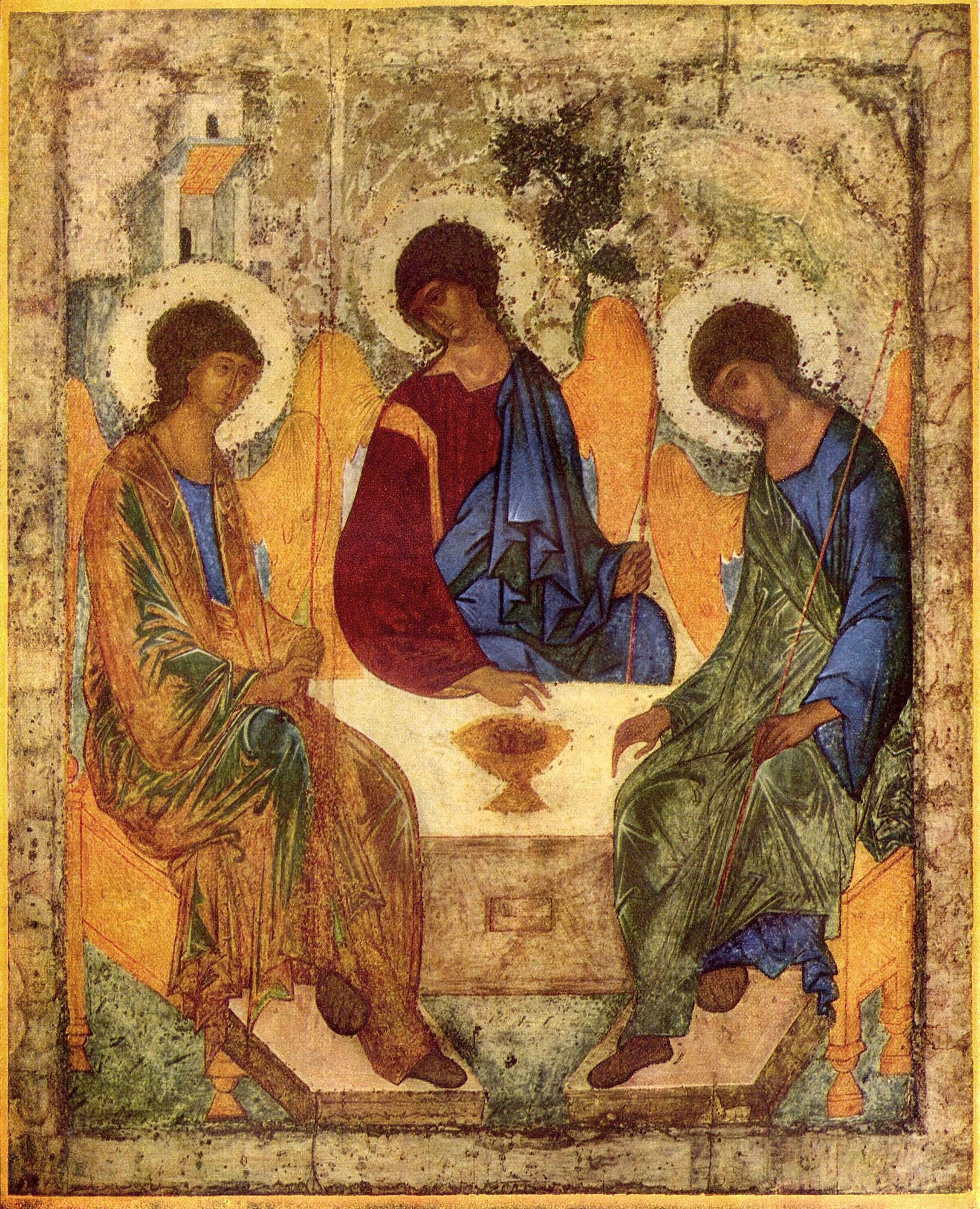
Rublev’s icon of the Trinity
The beauty of that language is in its connection across time and space, between disciples of Christ. When we proclaim baptism, blessing, marriage, forgiveness, in the name of the Father and the Son and the Holy Spirit, we are connecting ourselves to God and to the body of Christ. It is a powerful affirmation of our oneness in the God who is community, one in their diversity.
And then there’s the problematic element of this language. All language for God is problematic, in that it is inadequate. Language is a reaching for description and understanding of something we ultimately cannot name or fully understand.
Quite aside from its gendered limitations, which alienate people whom fathers, priests, men have hurt, to name one problem with that, a significant difficulty with Father, Son, Spirit language is that it is so entrenched in ritual and doctrine that we have become overly familiar with it. This causes us to
- lose our sense of awe and wonder with this language
- forget it’s a reaching, and ultimately inadequate
- ignore the multiple other rich ways God is named and described in biblical and extra-biblical tradition.
What is awe and wonder in response to Father, Son, Holy Spirit language for the Trinity?
Our Divine Loving Parent
That Jesus uses the name Abba is not, strictly speaking, to say ‘Father’ in the way our English usage reserves this for a more formal relationship. Abba is Aramaic for Dad, Daddy, Papa – the intimate name for a parent. In ancient times, the father was seen to carry the source of life, so it may indeed be natural that in choosing a parental name for the One who is Source of Life, Jesus leant towards Abba. Biological understanding has grown to show us the inherent mutuality of genetic parents for conception – it’s both together that is the source of life, not one or the other. Although, the mother is often in our time the stronger image for the source of life, perhaps.
Jesus may have chosen Abba, ‘Dad’ as a name to call on, but look at the story of his conversation with Nicodemus. The imagery is all mother – birth is the realm of the mother, it calls specifically to mind for Nicodemus a mother, a womb. No one can see the kingdom – or community – of God without birth from above. You enter through a mothering process.
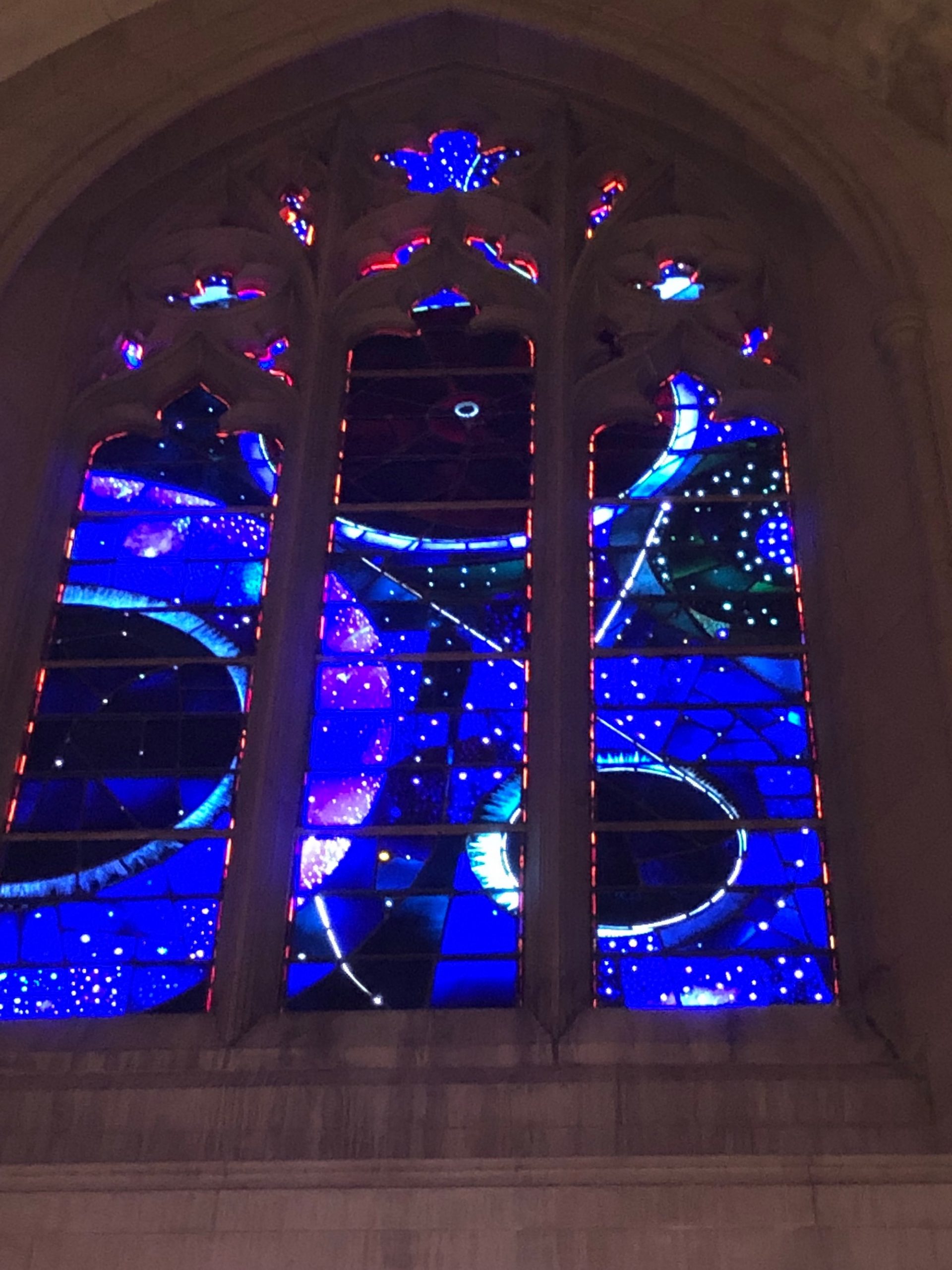
Theologians may come to terms with the Father language and be comfortable with its dominant use because they know they hold alongside it Jesus’ use of mothering imagery for God as much as Father language. But in the everyday congregation, we need reminders that ‘Father’ is not exclusively fatherly, but also motherly, the loving parent to each child of God. And we need reminders not only on Trinity Sunday, but throughout the year, which means using diverse language that represents more of the breadth of this doctrinal understanding from the heart of the stories – or I’ll have to preach on the names of God every time we speak them …
Language and imagery to help us capture again the awe and wonder of the Divine being known by their people through time as loving parent.
Of hierarchy and mutuality
Now, that the Son of Humanity descended from heaven and ascended to heaven, is given as Son of God?
Awe.
Wonder.
and perhaps here, we have not lost the awe and wonder as much as we have with ‘Father’. Advent, Christmas, Epiphany, Lent, Easter – the seasons and the stories we enter each year draw us into awe and wonder that God is incarnate in Jesus. In fact, it may be that the church sometimes elevates Christ to a higher position in our theology than his inherent mutuality within the Divine dance described in the doctrine of the Trinity.
she pauses to wait for the lightning to strike
but let’s talk about the mutuality, and our temptation to replace it in our understanding with a hierarchy within the Trinity. An overemphasising of Jesus and inattention to Parent and Spirit is one way we upset the balance of the doctrine of Trinity.
Because, as Jesus tells Nicodemus, the Wind blows where it wills.
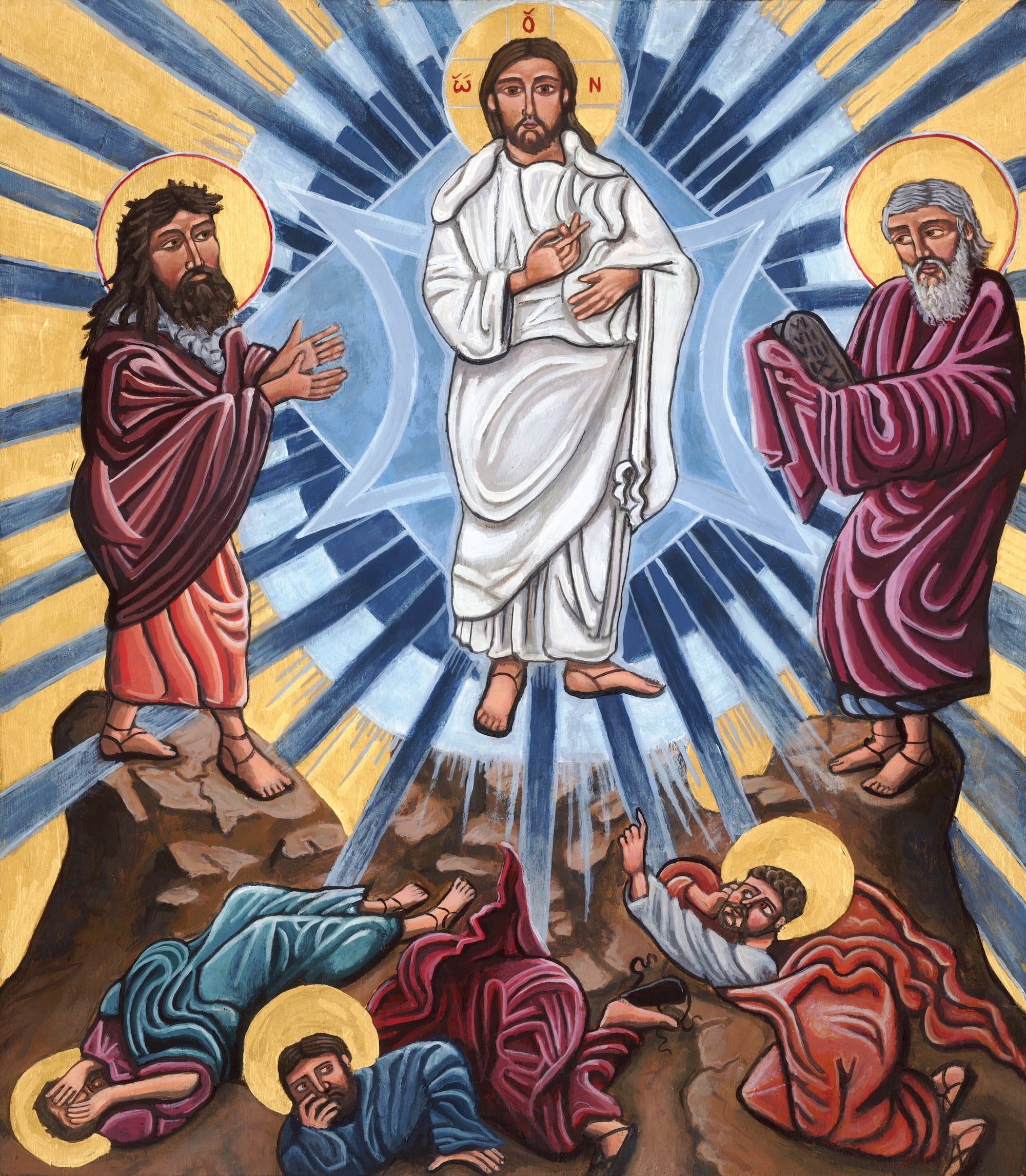
Kelly Latimore, Transfiguration
We retain our awe and wonder at Jesus, God incarnate.
More often, the hierarchy is embedded in that Father, Son, Spirit language and the doctrines and creeds that rely on it.
We build the hierarchy thus:
FATHER
Son
Holy Spirit
and equate FATHER with GOD, and not Son or Holy Spirit.
I try very hard, when speaking of the Trinity, to use ‘God’ for the three together, the One, and ‘Creator/Parent/Father/Mother’ and ‘Christ/Wisdom/Word’ and ‘Spirit/Breath’ as the three distinct.
so GOD = Parent & Word & Spirit
It’s why I like ‘Holy One, Holy Three’ so much. Holy One = God. Holy Three = those mutual energies or persons who dance together as three in one. And I don’t have to name them specifically.
It helps me maintain the awe, the wonder, the sense of mystery about God who we know and don’t fully understand. It helps me not fall into the trap of thinking because I’ve named God, I know God, and have them neatly contained in a safe little box.
To be born of the Spirit
Geoff reminded us last week that the Spirit is unpredictable, draws us away from the rational towards the romantic; invites us to embrace imagination and intuition.
To be born of the Spirit is to regain balance – it’s word and breath, not word or breath. It is to realign ourselves with the Sacred fulness, to re-enter the dance.
Trinity Sunday is the only festival instigated by doctrine rather than story in the Christian church. But we’ve already seen that the story sets the scene for the doctrine, as the earliest followers of Jesus begin to make meaning together of the way they’ve experienced God anew.
‘Born again’, Lauren Wright Pitman
Paul’s letters open windows onto the stories of the early churches gathering in Jesus’ name. and in his letter to Rome, we listen through the open window.
we cry Abba! Parent!
and the Holy Spirit bears witness
with our spirit that we are
children of Holy One,
heirs – all of us – with Christ,
entering his life, and thus
entering the Divine community.
Christ is the invitation into the Dance of Parent, Spirit, Christ, that we have found and accepted.
I have great sorrow with the way Christian doctrine, like that of Trinity, can be turned into a weapon against those who differ from those wielding it.
I write in Embodied Performance about my discomfort with how to receive portions of the letter to Rome, because of its history as justification for anti-Jewish behaviour. In performance – I may have told you, I performed the letter to Rome as part of my doctoral thesis – I couldn’t speak Paul’s thoughts on the place of ‘Israel’ because of this misapplication through the years.
Here, in chapter 8, however, Paul is even less about supercessionism than he is perceived to be in chapters 9 – 11. supersecessionism – the idea that Christians take the place of Jews as the people of God and Jews are condemned to life outside the Dance.
No.
Just. No.
Remembering who we are
I listened to Robyn Whittaker of Melbourne’s University of Divinity this week, discussing this passage on her podcast with Fran Barber ‘By the Well’. She spoke of the culture of the ancient world in which ‘heirs’ were only the eldest one, possibly two, definitely sons.
Paul is using this language to say we are all heirs, we all inherit, we all remain on the family homestead, adopted, welcomed – and this is radical.
Further, it’s not kicking the firstborn out. Those already enjoying their place as people of God stay where they are. and others are welcomed in with their story, through a new gate.
Jesus did say he was the gate, one of the many metaphors presented in John’s gospel.
Certainly there was an element of boundary drawing for a time in the early Christian church, as followers of Moses and of Jesus eventually formed themselves into separate communities. There needs to be some ‘we’re not them’ when a group is organising or reorganising its ideas about who we are.
Then you let that go. The church has erred when it has held more firmly to the ‘we’re not you and you’re not us’ ideas. That led the church to see what’s not us as wrong, to the point of dehumanising a whole people and enabling the holocaust.
The doctrine of Trinity, God as three in one, was one of the boundary lines. One of the distinguishing features that said – we’re not you any more.
And that’s ok. over time, we ought really to have had more confidence to not need to say we’re not you, you’re not us, but rather simply hold to who we are with integrity and celebrate who ‘you’ are with generosity.
So today, we hold to who we are. We are people who bless and baptise in the name of the Father and of the Son and of the Holy Spirit. We are people of the God whose three persons dance as one, the God of community, mutuality, welcome of the other. We are people of a community that celebrates diversity – three expressions of divinity affirmed and multiple ways to understand and name each one and even bringing them all together we don’t come close to fully comprehending.
We are lives sparked by a dance of mutuality, diversity, love, and we have returned to that dance when we live as one in mutuality, diversity, and love. May it be so. Amen.

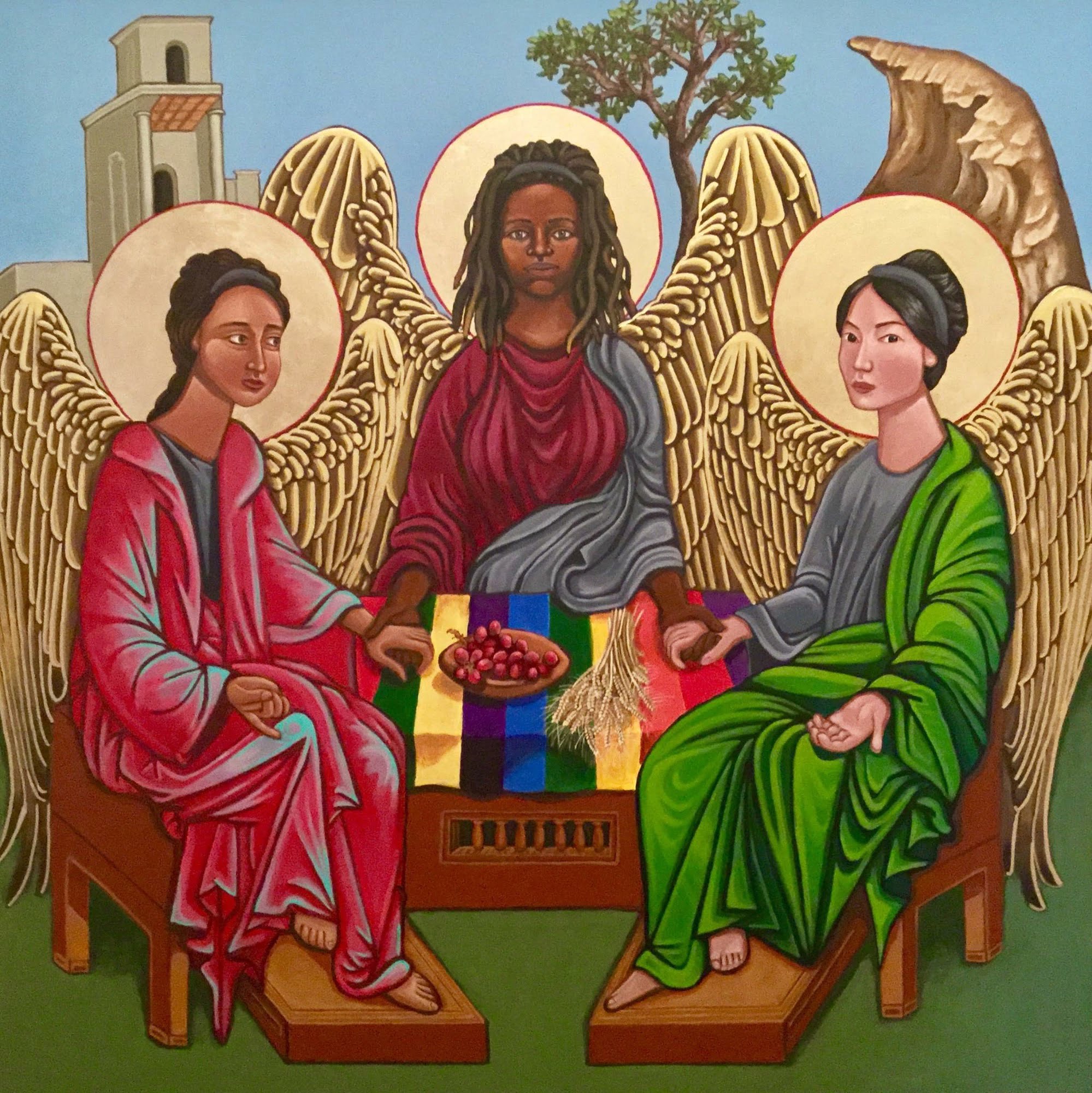


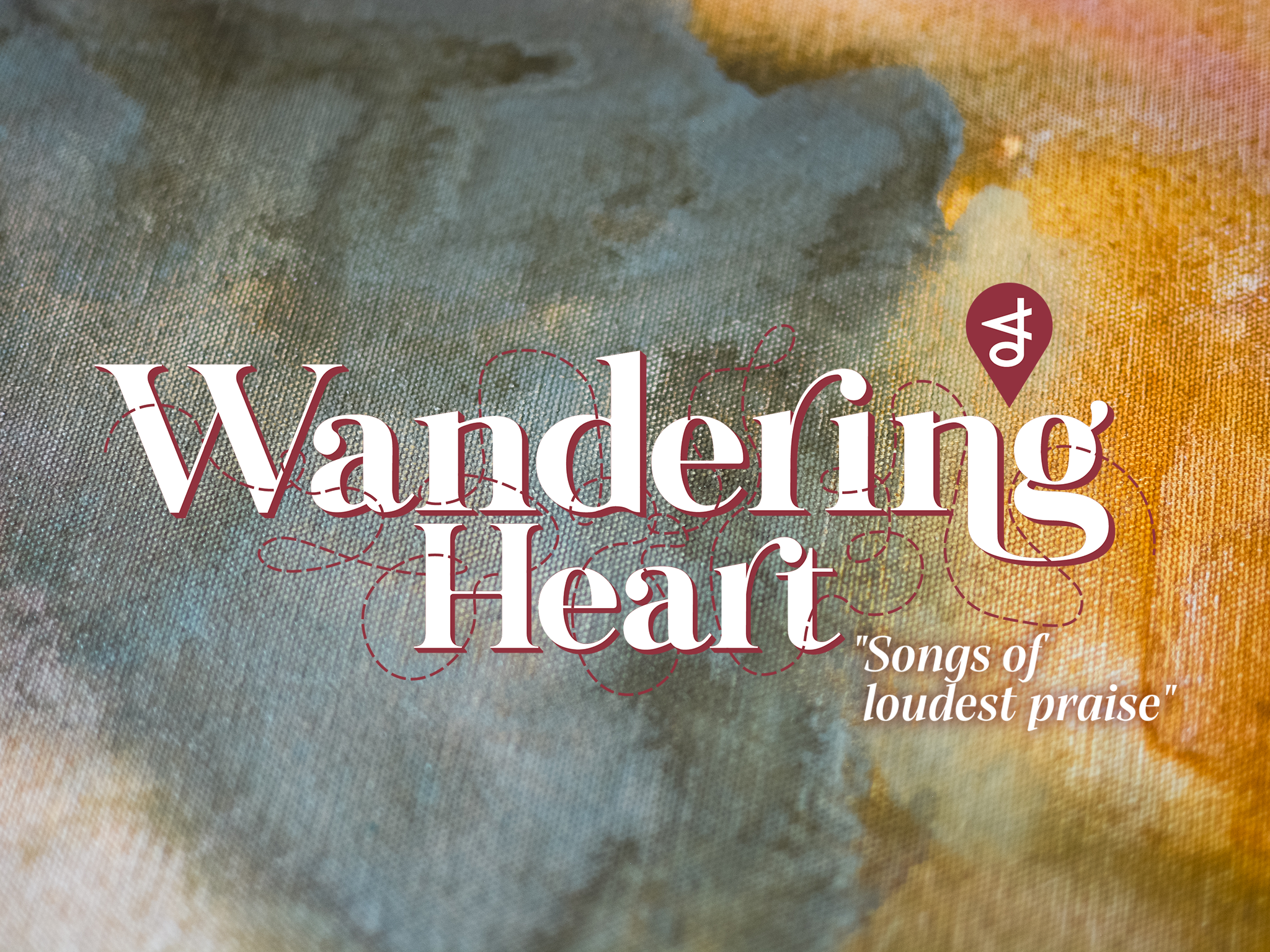
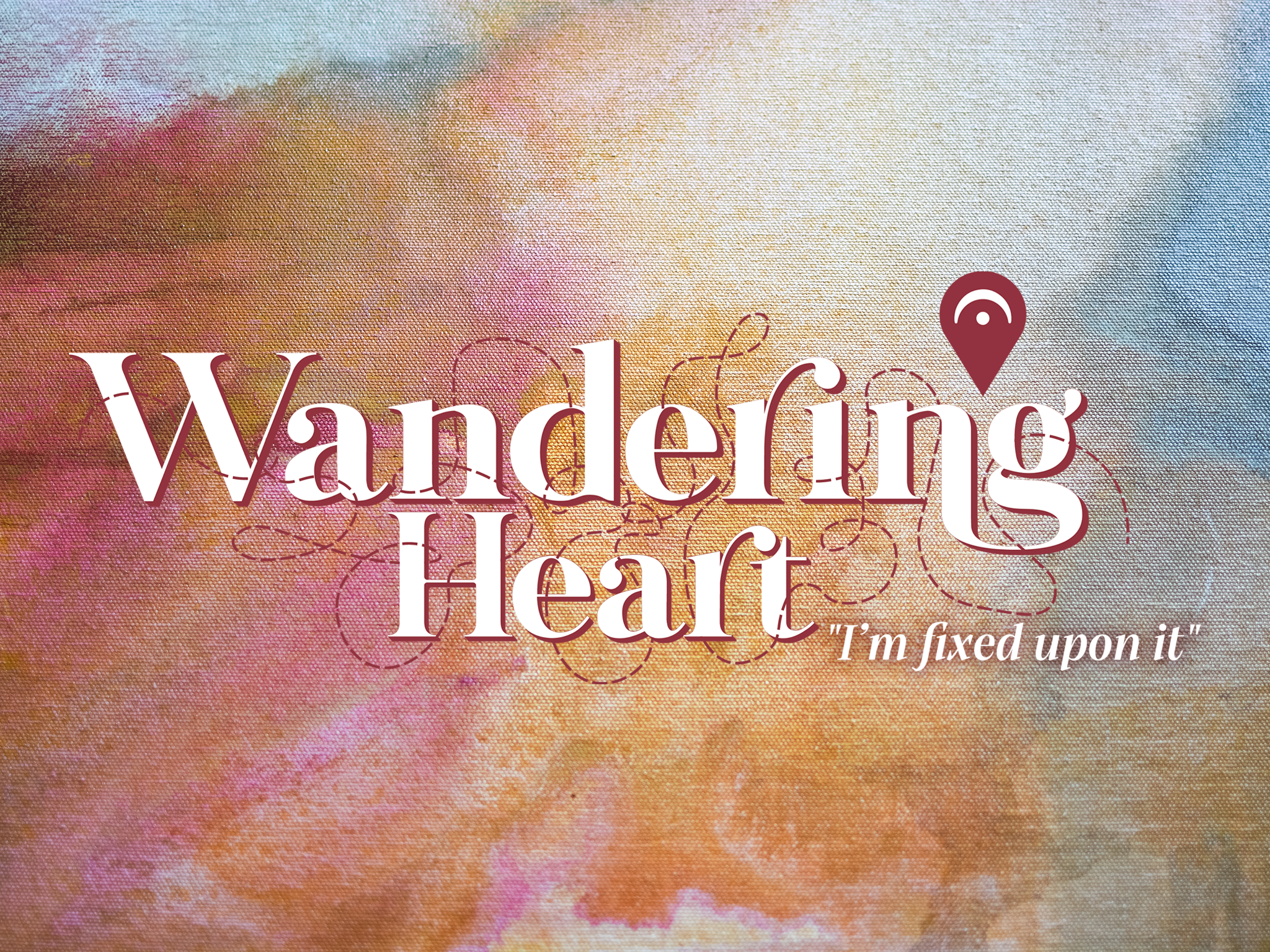
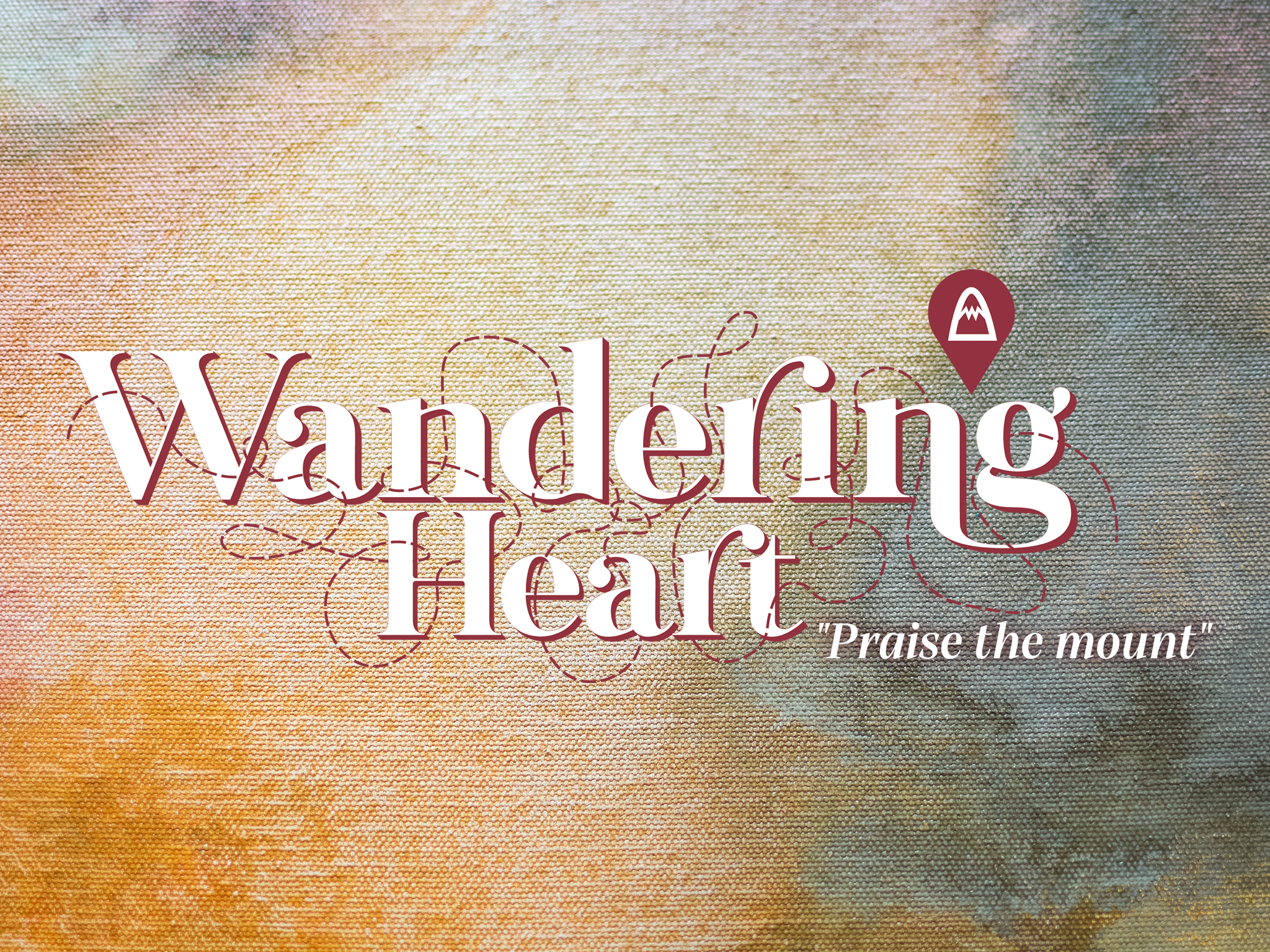
Leave A Comment